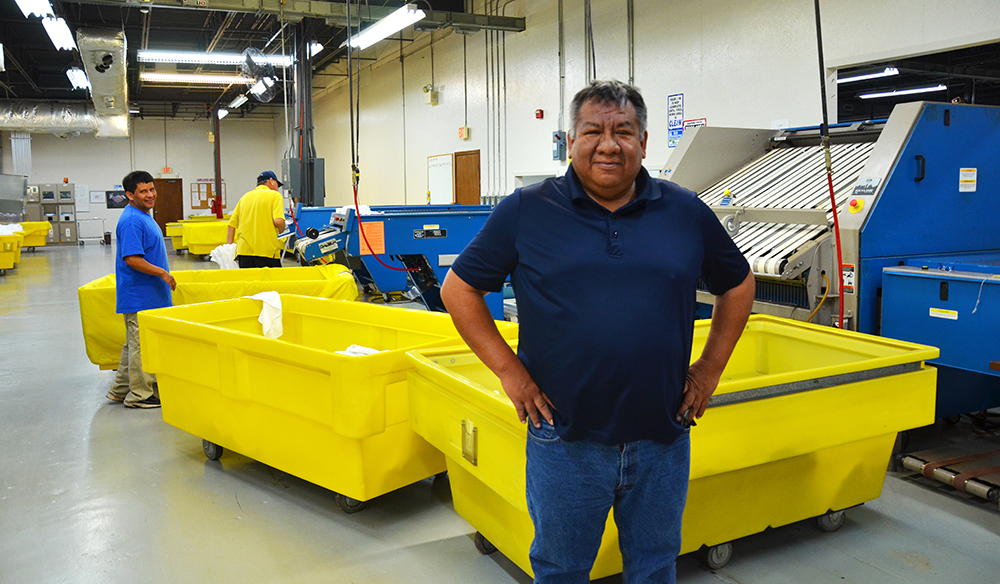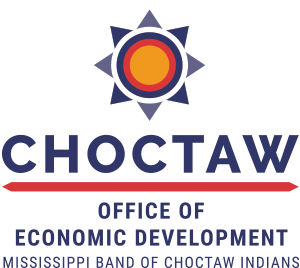CHOCTAW, Miss — For many domestic companies, the coronavirus has exacerbated troubles they were already having manufacturing in China, after the U.S. levied large import tariffs last year on Chinese-made goods.
The Mississippi Band of Choctaw Indians sees there might just be an opportunity for its industrial base in light of new developments.
“While Mexico – the only low-cost border country with a free trade deal with the U.S. – is expected to be the big winner, our status as a sovereign nation located within the U.S. presents a distinct advantage,” said John Hendrix, director of economic development for the Mississippi-based tribe.
Tax rates, labor and logistics play major roles in determining where manufacturing occurs, remarked Hendrix. “The Tribe has the total package – favorable tax structure, an abundant trainable workforce, and proximity to market.”
The first phase of the China trade deal President Trump struck this year is a positive, remarked Hendrix, but added the coronavirus shows how an over-reliance on China is bad for business.
And the big story is just how many U.S. firms are pulling out of China.
Beyond short-term economic disruptions and increased recession worries, the spreading coronavirus is sowing the seeds of a broad transformation of the global supply chains that for years brought low consumer prices and high corporate profits on products such as cellphones, computers and household goods.
China looks to be the biggest loser as U.S. producers step up plans to reduce their reliance on the world’s second-biggest economy, which has long enjoyed a central, dominant role in an international manufacturing network that ships parts and materials back and forth among different countries before assembling them into finished products.
Some nimble U.S. companies have already shifted manufacturing out of China to escape the coronavirus shutdown. However, U.S. apparel companies usually import extra inventory before China’s Lunar New Year celebrations, which began this year in late January. That extra supply has helped prevent empty U.S. retail shelves so far. But with almost 40 percent of U.S. apparel and 65 percent of footwear originating in China, the clock is ticking.
Last year, for the first time since 2011, the nation’s manufacturing import ratio fell. Meaning the U.S. relied on less imports and higher domestic output, more than it has in the past nine years. Imports from Asia’s low-cost countries (China + SEA) fell from $816 billion to $757 billion year-on-year.
So, what was the reason for this turnaround?
The trade war, of course.
“Throw in the corona virus and you have the perfect storm for China manufacturing and trade,” said Hendrix.
He notes that the global economy has become increasingly interconnected and supply chains have become increasingly efficient. That allows businesses to cut down on costs because parts can be manufactured in one country, assembled in another, and sold in yet another. The ease with which products can be shipped across the world also means companies do not have to warehouse large inventories, which eliminates an added expense.
The risk is that when the global supply chain is disrupted–most recently by the shuttering of factories due to the virus in China–many companies have few alternatives to fall back on. That is especially true of smaller and medium-sized companies that do not have operations in multiple countries.
“And that’s where the opportunity comes in for the Tribe,” said Hendrix. “We have sites and buildings ready for development for a variety of manufacturing or production uses.”
“We are in contact now with companies that are interested in moving their assembly or processing operations to Choctaw lands. As more businesses choose to partner with the MBCI, this will also be beneficial for Mississippi’s economy.”
As one of the United States’ original first nations, the Mississippi Band of Choctaw Indians is the only federally recognized American Indian tribe living within the State of Mississippi. With over 11,000 members, Choctaw lands cover over 35,000 acres in 10 counties. Providing permanent, full-time jobs for over 5,000 Tribal-member and non-Indian employees, the Tribe is a major contributor to the state’s economy.
###

NCCER Electrical Core Curriculum Students Appreciated
CHOCTAW, Miss. -- Brian Robinson’s National Center for Construction Education and Research (NCCER) Electrical Core Curriculum class had breakfast and a visit from Chief Cyrus Ben to show appreciation for their work and determination in class. Students include Michael...
Choctaw Teacher Selected as Mississippi Coding Academies Facilitator
CHOCTAW, Miss. -- Shonda R. Wesley is from the Pearl River Community but currently is living in Edinburg, MS. Ms. Wesley’s parents are Deborah Tubby, Stepdad Sandy Tubby, and the late Kenneth Wesley. She has three brothers and three sisters and many nieces and nephew....
Mississippi Choctaws’ Economic Development Office Offers Virtual Tours to Prospective Partners
CHOCTAW, Mississippi -- As COVID-19 continues to hinder the in-person site selection process, the Mississippi Band of Choctaw Indians' Office of Economic Development is responding by offering virtual tours online of its available sites and buildings. In its recently...
Choctaw Opportunity Zones Could Boom In 2021
CHOCTAW, Miss. -- The Mississippi Band of Choctaw Indians’ two Opportunity Zone designations are expected to garner attention in the coming months as a result of a projected big boost from the new administration in Washington. The MBCI was able to secure Opportunity...
MBCI Holds Ribbon-Cutting Ceremony for Mississippi Coding Academies TechShare Program
CHOCTAW, MS -- On January 19, 2021, the Mississippi Coding Academies (MCA) and the Mississippi Band of Choctaw Indians Office of Economic Development had a ribbon cutting ceremony to celebrate the MCA TechShare program that will be taught at Choctaw. Choctaw is one...
Mississippi Choctaws’ Educational Efforts Boosted by New Markets Tax Credit
CHOCTAW, Mississippi -- The Mississippi Band of Choctaw Indians recently closed a New Markets Tax Credit transaction related to its two new early childhood education centers and an elementary school expansion -- resulting in a $2.3 million benefit to the Tribe. “We...
Mississippi Choctaws Installing Technology in Commercial Buildings to Neutralize Covid-19 Virus
CHOCTAW, Miss. -- The Mississippi Band of Choctaw Indians is updating all of its commercial and industrial buildings with needlepoint bipolar ionization, a technology that will greatly enhance the air quality and provide neutralization against Covid-19. "In an...
Tribal Employee Becomes NCCER Certified as Instructor in HVAC
CHOCTAW, Miss. — Christopher Dearing lives in Philadelphia, MS with his family and currently is an employee of the Mississippi Band of Choctaw Indians. For the past three years, he has worked as an HVAC/R Technician for Choctaw Tribal Maintenance. He has over 10 years...
Mississippi Choctaws Receive 2.5 GHz Spectrum License to Assist in Broadband Access for Tribe
CHOCTAW, Miss. -- The Mississippi Band of Choctaw Indians recently was awarded a 2.5 GHz license by the Federal Communications Commission, which will be used to provide wireless broadband service in portions of the Bogue Chitto and Conehatta communities. This license...

John Hendrix
Director of Economic Development
601.650.1607
jhendrix@choctaw.org
Office of Economic Development
375 Industrial Road | STE 2
Choctaw, MS 39350





